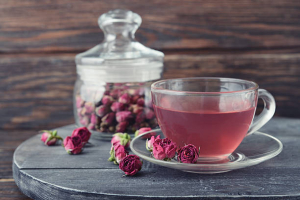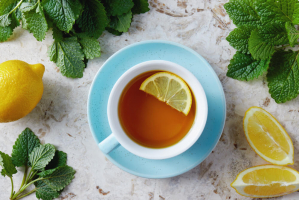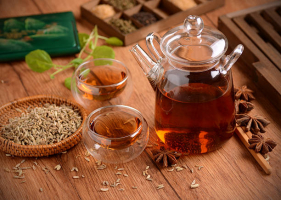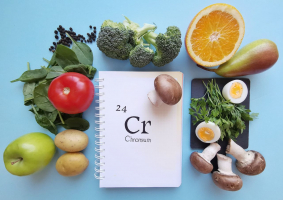Top 9 Best Teas That Can Improve Digestion
For thousands of years, people have used tea to aid with gastrointestinal problems and other ailments. Numerous herbal teas have been demonstrated to be ... read more...effective in treating a variety of conditions, including indigestion, constipation, and nausea. Thankfully, the majority of them are readily available and simple to produce. The finest teas for digestion are listed below.
-
The Mentha piperita plant produces the green herb known as peppermint, which is prized for its cooling flavor and digestive-soothing properties. Studies on both animals and people have demonstrated that the peppermint component menthol helps with digestive problems. Irritable bowel syndrome (IBS), an inflammatory disorder that affects the large intestine and can cause stomach discomfort, bloating, gas, and other unpleasant symptoms, is occasionally treated with peppermint oil.
In a 4-week trial of 57 persons with IBS, 75% of those who took peppermint oil capsules twice daily reported improvement in symptoms, compared to 38% in the placebo group. Although the effects of peppermint tea on human digestion have not been explored, they may be comparable to those of peppermint oil. To create peppermint tea, soak 7-10 fresh peppermint leaves or 1 peppermint tea bag for 10 minutes in 1 cup (250 ml) of heated water before filtering and sipping.
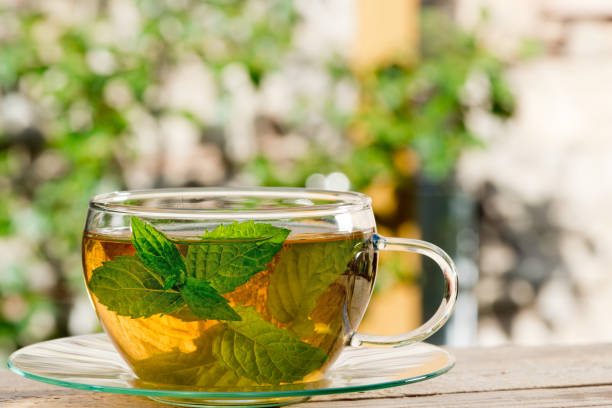
Peppermint 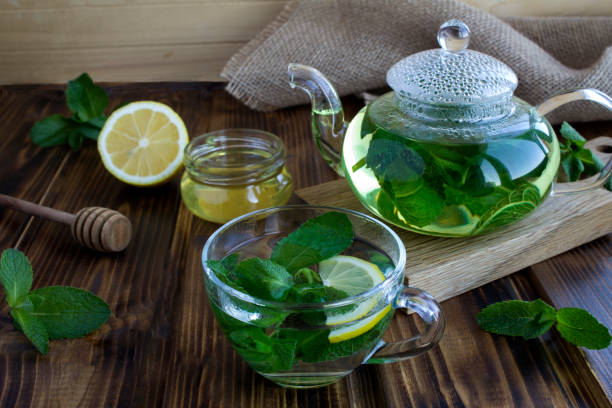
Peppermint -
Zingiber officinale, or ginger, is a flowering plant that is indigenous to Asia. Its rhizome, or subterranean stem, is frequently used as a spice all across the world. Stomach contractions and emptying can be induced by gingerol and shogaol compounds, which are found in ginger. As a result, the spice may relieve indigestion, bloating, gas, cramps, and nausea. According to a thorough assessment, consuming 1.5 grams of ginger daily decreased nausea and vomiting brought on by chemotherapy, motion sickness, and pregnancy.
Another research of 11 indigestion sufferers discovered that consuming supplements containing 1.2 grams of ginger dramatically reduced the time it took for the stomach to empty by almost 4 minutes when compared to a placebo. Although there is no research comparing the effects of ginger pills and ginger tea, the tea may have similar advantages.
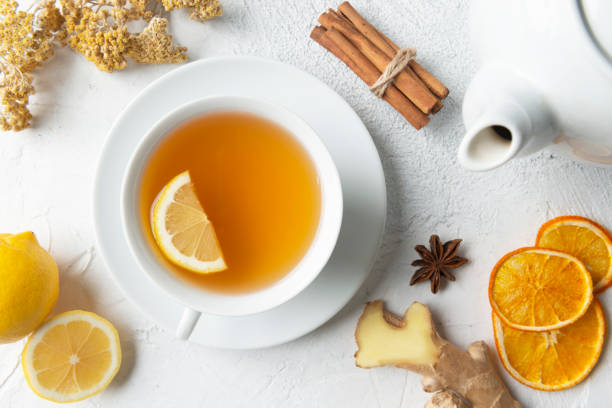
Ginger 
Ginger -
The Gentianaceae family of flowering plants, which is found all over the world, is where the gentian root originates. For millennia, many gentian root variations have been used to increase appetite and heal digestive disorders. The bitter iridoids found in gentian root are thought to be responsible for the plant's benefits since they can boost the synthesis of digestive acids and enzymes.
Furthermore, one research of 38 healthy people discovered that drinking water combined with gentian root enhanced blood flow to the digestive tract, which may aid in digesting. Dried gentian root can be found in natural food stores or online. Steep 1/2 teaspoon (2 grams) of dried gentian root in 1 cup (250 ml) boiling water for 5 minutes before filtering to produce gentian root tea. To help digestion, drink it before meals.
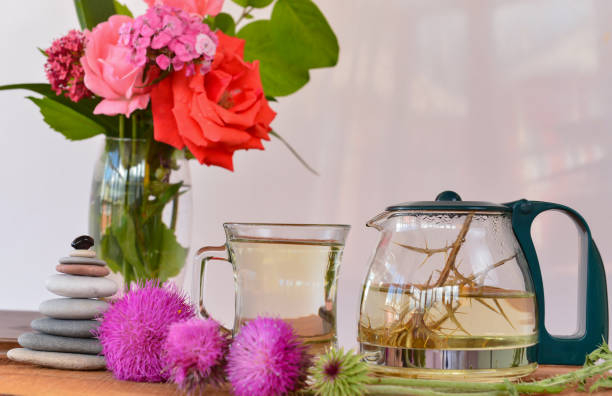
Gentian root 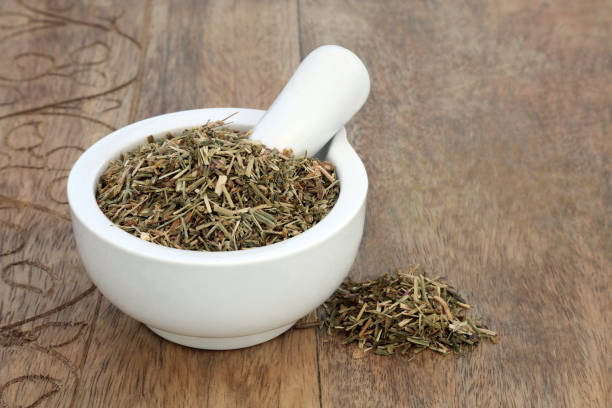
Gentian root -
A blooming plant known as Foeniculum vulgare produces the herb known as fennel. It may be eaten raw or cooked and has a flavor similar to licorice. Studies on animals have demonstrated that fennel prevents stomach ulcers. The herb's antioxidant components, which help prevent ulcer damage, are probably responsible for this capacity. Additionally, it could ease constipation and encourage bowel motions. The specific mechanism and rationale for fennel's laxative effects are unclear.
In one research of 86 senior persons with constipation, those who drank fennel tea every day for 28 days had considerably more bowel movements than those who got a placebo. To create fennel tea, combine 1 cup (250 ml) of heated water with 1 teaspoon (4 grams) of fennel seeds. Allow it to settle for 5-10 minutes before straining and drinking. You may also use fennel tea bags or freshly grated fennel root.
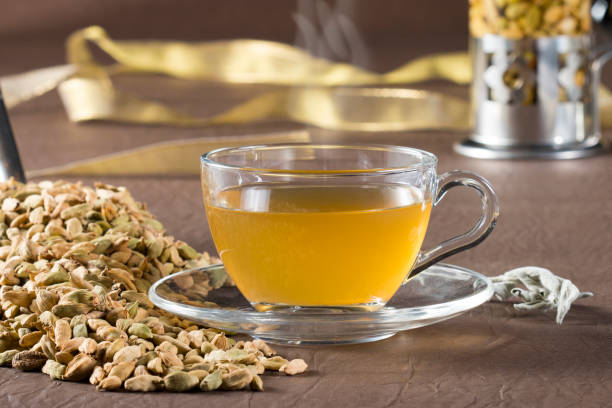
Fennel 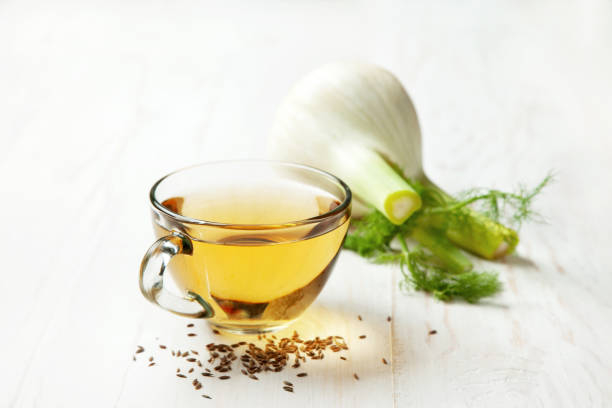
Fennel -
The blooming plant known as angelica is found all across the world. It tastes rather celery-like and earthy. Although this plant has been used in traditional medicine for thousands of years, angelica root in particular may help with digestion. A polysaccharide found in angelica root may prevent stomach injury by boosting the number of healthy cells and blood vessels in the digestive system, according to animal research. As a result, it could also aid patients who have ulcerative colitis, an inflammatory disorder that results in ulcers in the colon, in preventing intestinal damage brought on by oxidative stress.
Furthermore, angelica root was discovered to promote the release of intestinal acids in a test-tube investigation on human intestinal cells. As a result, it may aid in the relief of constipation. These findings imply that drinking angelica root tea may benefit digestive health, although no human trials have validated this. 1 tablespoon (14 grams) fresh or dried angelica root to 1 cup (250 ml) boiling water to prepare angelica root tea Allow it to steep for 5-10 minutes before straining and serving.
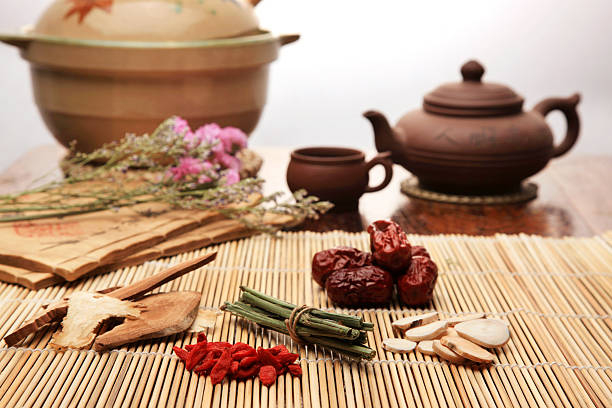
Angelica root 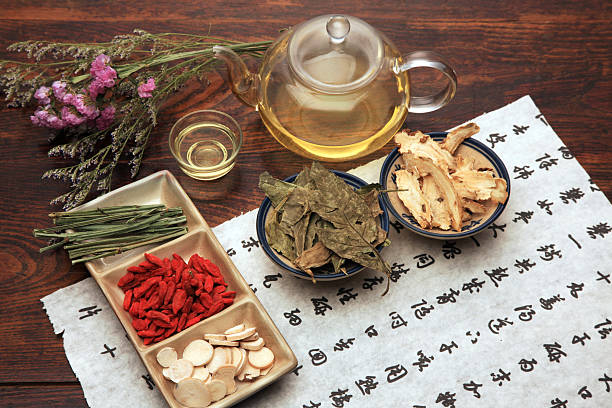
Angelica root -
Weeds from the Taraxacum genus include dandelions. They grow all around the world, including on many people's lawns, and have yellow blooms. According to research on animals, dandelion extracts include chemicals that may aid in digestion by triggering muscular contractions and facilitating the passage of food from the stomach to the small intestine. The dandelion extract was shown in mouse research to help prevent ulcers by reducing stomach acid production and battling inflammation.
As a result, drinking dandelion tea may help with digestion. However, human research is sparse. In a saucepan, mix 2 cups of dandelion blossoms and 4 cups of water to prepare dandelion tea. Bring the mixture to a boil, then remove from the heat and set aside for 5-10 minutes to steep. Before drinking, strain it through a strainer or sieve.
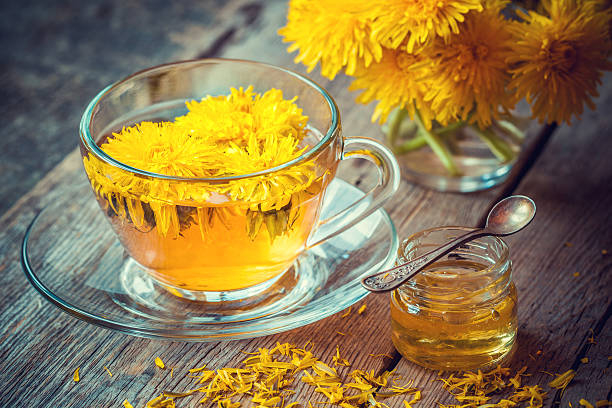
Dandelion 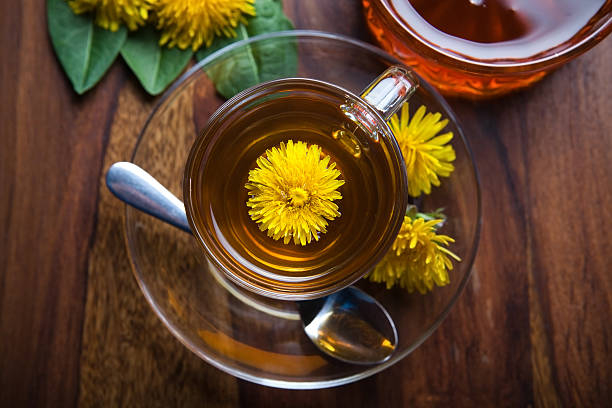
Dandelion -
Herb senna is produced by blossoming cassia plants. Sennosides, a class of compounds found in it, degrade in the colon and act on smooth muscle to stimulate contractions and bowel movements. Senna is a highly efficient laxative in both children and adults who are constipated for a variety of reasons, according to studies. One research indicated that more than 60% of individuals who took sennosides for 5–12 days had a bowel movement on more than half of those days. This trial had 60 cancer patients, 80% of whom were receiving opioids that can cause constipation.
As a result, senna tea may be an effective and simple approach to relieving constipation. However, drinking it sometimes is recommended to avoid diarrhea. Senna tea may be made by steeping 1 teaspoon (4 grams) dried senna leaves in 1 cup (250 ml) boiling water for 5-10 minutes before filtering. Senna tea bags can also be purchased at most health food stores and online.
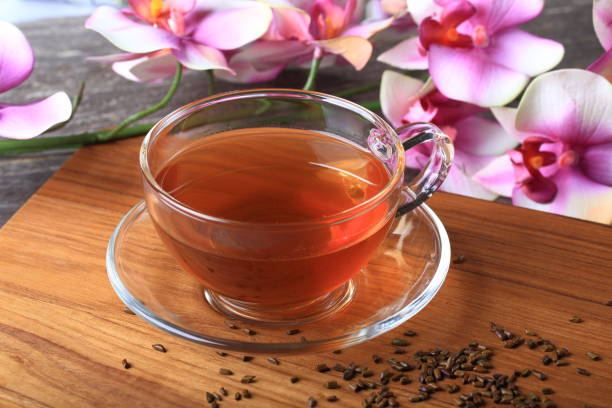
Senna 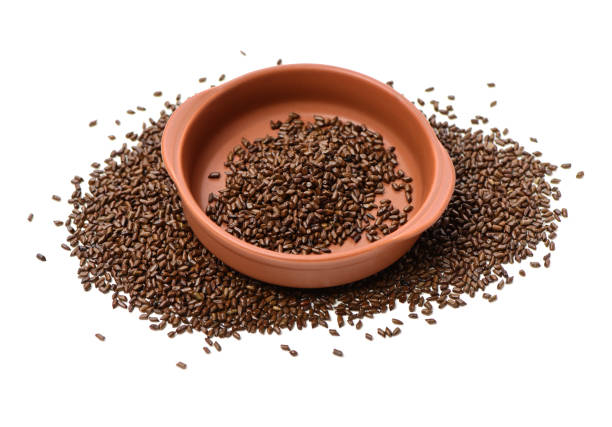
Senna -
Althaea Officinalis, a blooming plant, produces marshmallow roots. Mucilage, one of the polysaccharides found in marshmallow root, can aid in promoting the creation of the mucus-producing cells that line your digestive tract. Marshmallow root may contain antioxidant effects that help reduce levels of histamine, a substance generated during inflammation, in addition to stimulating mucus production and coating your throat and stomach. Consequently, it could guard against ulcers.
In fact, in one animal trial, marshmallow root extract was found to be particularly helpful in preventing stomach ulcers induced by nonsteroidal anti-inflammatory medicines (NSAIDS). While these findings on marshmallow root extract are intriguing, additional study on the benefits of marshmallow root tea is required. Combine 1 tablespoon (14 grams) of dried marshmallow root with 1 cup (250 ml) of boiling water to create marshmallow root tea. Allow for a 5-10 minute steep before straining and consuming.
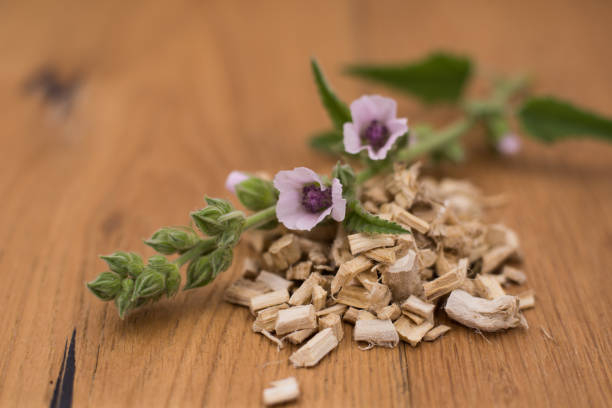
Marshmallow root 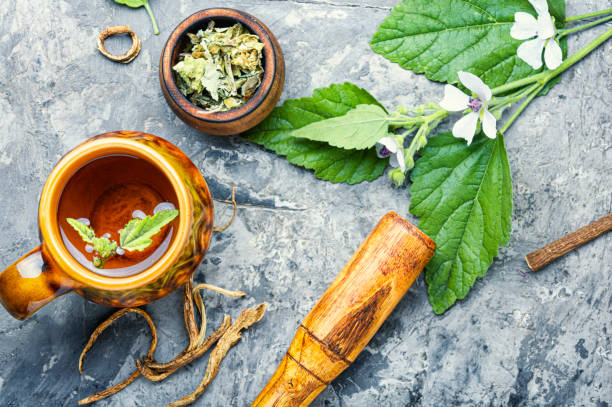
Marshmallow root -
Camellia sinensis is the plant that produces black tea. It is frequently brewed with other plants in variants like Earl Grey and English Breakfast. This tea has a number of beneficial ingredients. These contain theaflavins, an antioxidant that may prevent stomach ulcers, and thearubigins, which may alleviate indigestion. In one study, black tea and theaflavins were given to mice with stomach ulcers for 3 days, and it was shown that by reducing inflammatory substances and pathways, 78–81% of the ulcers were cured.
Another mouse study discovered that black tea extract relieved delayed stomach emptying and the accompanying dyspepsia induced by medication. As a result, while drinking black tea may aid digestion and protect against ulcers, additional study is needed. Before consuming, steep a black tea bag in 1 cup (250 ml) of heated water for 5-10 minutes. If you use loose black tea leaves, filter the tea after steeping.
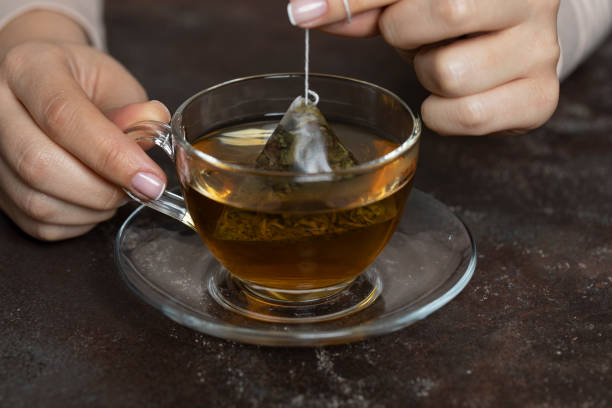
Black tea 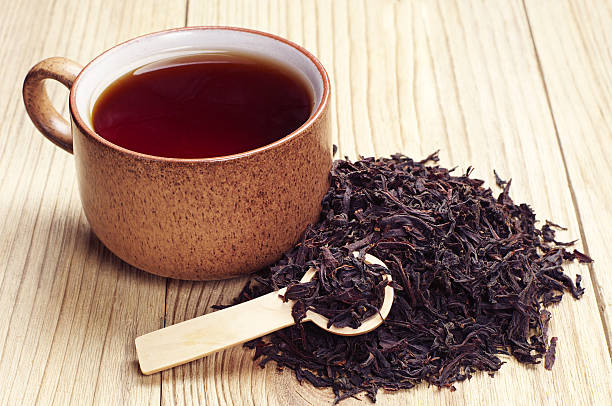
Black tea











